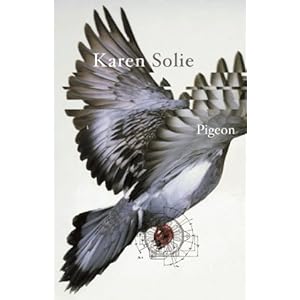If you want different poetry, here it is. Brenda Shaughnessy’s first collection, published in 1999, communicates the shock of writing something not written before. It’s hard to describe her poems in prose. This is how the book ends:
I am ever stunned,
seduced whistle-thin
& hot with home. Breathless with
mercury, columbine. Come, let us miss
another wintertime.
That’s from the title poem. The poems are all interiors – set indoors, love poems, exploring states of mind and the psychology and practice of love and sex, pleasure and pain. Many are addressed to a ‘you’, who (when anything) is female, but could be one or many – plot doesn’t signify. The language, often contained / released by couplets or triplets, is lyrical, erotic, funny and highly baroque, and may get you looking up words. ‘Jouissance’ begins like this –
Your phantoms hang neatly from skyhooks
ready to be veils, ready to disembody you.
And includes this passage:
Electric to perishing, your more auxiliary lovers,
like pralines or quaaludes, cannot touch you.
No teasing or lockjaw. Caustic. All of you, even shadow,
must be bull’s-eye. Your shaggy, skeptical
quasar has died the way Andromeda dies:
so very late at night. You are disenchanted.
Influences surely include Plath, Ashbery and O’Hara – and those are just the ones I know about and thought of. Shaughnessy’s tone is both ecstatic and knowing. She flings out strings of impossible associations. These seem weirdly wonderful, often erotic:
What’s Uncanny
is the body’s wiry edge singed & dried,
touched at last by the curious
gloves of the question guard.
Sometimes they drown in their own eclecticism. It’s as if there’s too much stuff in the writer’s head – from history, mythology, astronomy, wherever – all fighting to get into a poem. Here’s a passage from ‘Arachnolescence’:
I’ve won the tourniquet, I’ve devastated toddlers
in the height of their podlike fashion, in their pink-naped
heaven of Erasmus and his near-wife, Chlamydia.
Give me five years, lovers, I will give you the ancient torture
device constructed of kisses, in the glum transfusion
of crisp, lichen climate with rectangular erotics.
To me, the last three lines of that really get something across; but their impact is lessened by the stuff in the first three. Toddlers, Erasmus and chlamydia? Am I missing something? if it’s just a piss-take, I don’t really care – don’t find the language or content interesting.
I love the simplicity of these opening lines from ‘Your Name on It’ –
Let this one clear square of thought be just
like a room you could come to in.
Where the poem goes after that subverts expectations, and seems easier to do, however vivid:
Let this one clear square of thought be just
like a room you could come to in. An attic room,
after you’ve swiveled over to the wrecked
corner of the champagne. After you
hand-rolled cigarettes and ass and sold
your best midnight speech to a slick jack
of clubs. For a stingy cut: a wet, bony
kiss.
A few poems are on different themes, like ‘Lacquer’, which starts:
I found my mother’s diary
an indigo sac of silk and ink.
I read it. The words in Japanese
but the characters as American
as a girl of fashionable twelve
bearing an amnesia so dense
she could never drag it
out into the yard.
This seems a deft way to describe the hidden difficulties of assimilation; this poem made me hope she’ll write more stuff like it.
I first read Interior with Sudden Joy about a year ago, and loved the way the weirdness of the language and associations got my synapses going, often misfiring pleasurably with half-understandings.
Reading it again now, maybe my expectations were too high. There are places where I get glutted on words, and lost without being interested enough to enjoy it. But then I come to another synapse-misfiring bit, like this opening of ‘Ever’:
Where, swift and wool in going?
Fell always wishing like this.
Shaughnessy says in an interview that the choice of writing poetry "seemed to offer the simultaneous and attractive possibility of being deeply understood and completely misunderstood”. (From Princeton University’s website, where she teaches.) This is a great quote, which illuminates the book. Whatever understanding does come from reading the poems is not at the level of ordinary consciousness.
Interior with Sudden Joy, published by Farrar, Straus and Giroux, New York 1999. Costs £6 on Amazon UK. Shaughnessy has a second collection, Human Dark with Sugar, 2008. Both are in the London Poetry Library.

